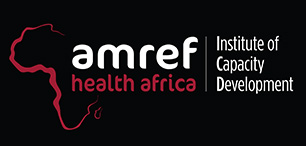The first case of COVID-19 was reported in Wuhan City, China in December 2019. The pandemic spread fast around the globe, with Kenya reporting its first case in March 2020. Countries around the world put in several measures to contain the spread, for example, by closing airports and border entry points, rolling out national COVID-19 response plans, establishing isolation centers and commencing rigorous contact tracing coupled with massive social behavior change messaging. While these measures helped to block the pathways of infections coming in from international travelers, there was evidence that the growing number of cases was the result of an increase in community transmission. It was, therefore, imperative to support the Ministry of Health in its efforts to: (i) scale up disease surveillance at the community level to identify and quickly refer suspected cases for screening, (ii) rapidly expand testing and isolation of confirmed cases, and (iii) equip health workers and communities with the correct and up-to-date information about the pandemic. It is these collective efforts that contribute to slowing down infections and halting the COVID-19 pandemic.
Mastercard Foundation funded Amref Health Africa to support COVID-19 control response interventions in Kenya. The COVID-19 Recovery and Resilient Programme was a 12-month intervention that aimed at helping to flatten the COVID-19 curve in Kenya. The project objectives were:
i) To rapidly expand community level surveillance, testing and isolation of confirmed cases
ii) To equip health workers and communities with the correct and up-to-date information about the pandemic
The project was implemented in all the 47 counties in Kenya.
In order to achieve the above mentioned objectives, the project adopted the following four strategies:
A total of 30,748 (97% of the 31,820 target) CHVs were enrolled on to the Leap and 33,256 (100% of the 33,104 target) health care providers to the Jibu digital learning platforms respectively. Through the training received, the HCPs were able to:
i) Constitute and strengthen Rapid Response and Risk Communication Teams (RRTs)
ii) Identify emerging needs, such as mental health issues in the COVID-19 response.
The project harnessed the capacity of the Amref Central Laboratory (ACL) to provide additional testing capacity to the Ministry of Health’s (MoH) need for handling the surge in COVID-19 cases. A total of 5,849 test were conducted at ACL. We collaborated with MoH to scale-up testing beyond the conventional centralised real-time polymerase chain reaction (RT PCR) testing in a few well established facilities like Kenya Medical Research Institute (KEMRI). We supported the government of Kenya to expand COVID-19 testing by introducing point of care testing using GeneXpert platform. The project supported revamping of existing systems in the GeneXpert facilities by installing and commissioning of 33 autoclaves, certification of 12 biosafety cabinets, procurement of two biosafety cabinets for Iten and Hola hospitals. The Turn Around Time (TAT) for results significantly reduced from several weeks to two hours.
The COVID-19 Resilience and Recovery programme strenghthened health systems by building capacities of MoH facilities to expand COVID-19 testing, training of health care providers by leveraging technology, provision of PPEs and laboratory equipment. This significantly contributed to the country’s response to COVID-19 pandemic. Drawing from our experience, we identified potential areas for future collaboration including:
i) Mental health and psychosocial care
ii) Institutionalisation of COVID-19 courses into pre-service and in-service training
Continue collaborating to support expansion of COVID-19 testing on GeneXpert platform from the 14% coverage (33 of the 226 existing GeneXpert sites in Kenya) to the remaining 193 sites that include private facilities.
https://journals.sagepub.com/doi/pdf/10.1177/2158244015621777
i) Training of CHVs in Kirinyaga County reported on local TV station
https://youtu.be/WQ8SLlK5siY
ii) Launch of project activities in Kirinyaga County was preceded by donation of 200 cartons of hand sanitizers for distribution to community health workers reported by local newspaper and posted on Kirinyaga County Website
https://www.the-star.co.ke/counties/central/2021-01-21-amref-to-train-1500-kirinyaga-community-health-volunteers
iii) Launch of the Mastercard Foundation funded COVID-19 Resilience and Recovery Programme posted on the Amref website
https://newsroom.amref.org/news/2020/08/amref-health-africa-partners-with-mastercard-foundation-to-help-flatten-the-covid-19-curve-in-kenya-2/
iv) Training of healthcare professionals through Jibu
https://jibu.africa
v) Other project activities posted on media
https://www.the-star.co.ke/news/2020-08-14-sh180m-amref-project-to-train-31000-chvs-on-covid/
https://twitter.com/leaphealthmobi/status/1313547311298105344?s=08
https://twitter.com/Amref_Kenya/status/1332182251157790720?s=08
- Mastercard Foundation
- Amref Health Africa (Institute of Capacity Development, Amref Health Innovations, Amref Laboratory)
Anthony Karanja | Programme Manager, Kenya – [email protected]
